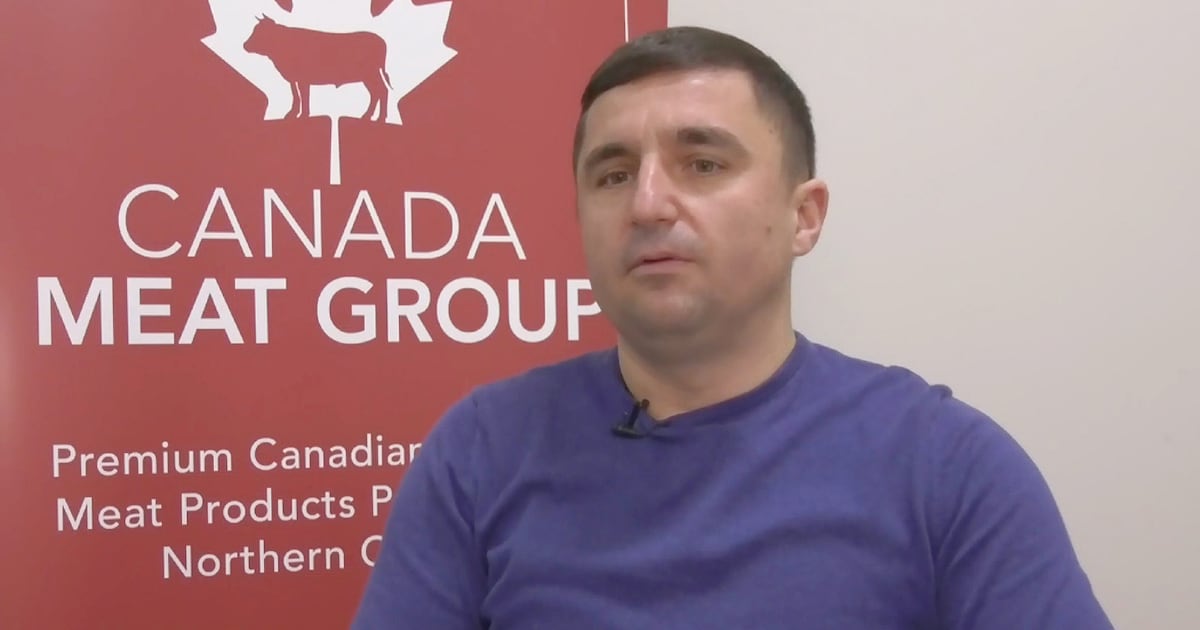Top Stories
Ukrainian Man Denied Canadian Residency Amid Secret Service Controversy

URGENT UPDATE: A man from Ukraine, Oleksandr Zahrebelnyi, has been denied permanent residency in Canada due to his prior affiliation with the Ukrainian Secret Service, known as the SBU. This shocking ruling, confirmed by the Federal Court on April 10, 2024, raises significant questions about the implications for Ukrainian immigrants in Canada.
Zahrebelnyi, who relocated to North Bay, Ontario, in 2017, openly disclosed his SBU service when applying for residency. The court’s decision highlights that while Zahrebelnyi is not accused of any personal wrongdoing, his mere association with the SBU, which has been linked to actions against democratic processes, led to the denial of his application.
“His inadmissibility results from his admitted service and employment with the SBU between 1998 and 2011,” the court stated. Despite being transparent about his history, the ruling reflects a strict interpretation of Canadian immigration laws aimed at safeguarding democratic values.
Zahrebelnyi left the SBU in 2016 to pursue entrepreneurship, launching a meat processing plant called Canada Meat Group. His business flourished, employing 20 people and planning to expand to 150 hires. However, these ambitions have been thwarted by the residency denial, leaving his family in a state of uncertainty.
In a heartfelt statement, Zahrebelnyi called the decision “unfair and unjustified,” expressing the strain it places on his family and business. “It is very difficult to maintain and make any strategic decisions for the business when the life of my family is in ‘limbo,’” he told CTV News.
The immigration officer who denied Zahrebelnyi’s application cited his SBU membership as grounds for the decision, arguing that the organization had engaged in “subversion against a democratic government.” This interpretation underscores a broader concern for Canadian officials regarding individuals affiliated with entities that threaten democratic institutions.
A major point of contention in the appeal process revolves around the definition of “subversive” actions. The immigration official maintained that membership in the SBU, despite Zahrebelnyi’s lack of involvement in specific subversive acts, justified the denial. The court’s ruling emphasized the importance of protecting Canadian democracy from individuals linked to organizations involved in political repression and other questionable practices.
Zahrebelnyi’s appeal argued that the lengthy decision-making process—spanning over four years since his application in 2020—was an abuse of process. However, the Federal Court found insufficient evidence of severe consequences stemming solely from the delay, attributing the negative impact mainly to the unfavorable investigation outcome.
As this situation unfolds, the implications for Zahrebelnyi and his family are dire. With their future in Canada hanging in the balance, the community is rallying support, urging officials to reconsider the impact of such rulings on innocent families seeking refuge and a new beginning.
The decision has sparked a larger conversation about the treatment of immigrants with complex histories and the balance between national security and humanitarian compassion. As Canada continues to welcome those fleeing conflict, the case of Oleksandr Zahrebelnyi serves as a critical reminder of the ongoing challenges faced by many in similar situations.
Stay tuned for updates as this story develops.
-

 Politics4 weeks ago
Politics4 weeks agoSecwepemc First Nation Seeks Aboriginal Title Over Kamloops Area
-

 World5 months ago
World5 months agoScientists Unearth Ancient Antarctic Ice to Unlock Climate Secrets
-

 Entertainment5 months ago
Entertainment5 months agoTrump and McCormick to Announce $70 Billion Energy Investments
-

 Science5 months ago
Science5 months agoFour Astronauts Return to Earth After International Space Station Mission
-

 Lifestyle5 months ago
Lifestyle5 months agoTransLink Launches Food Truck Program to Boost Revenue in Vancouver
-

 Technology3 months ago
Technology3 months agoApple Notes Enhances Functionality with Markdown Support in macOS 26
-

 Lifestyle3 months ago
Lifestyle3 months agoManitoba’s Burger Champion Shines Again Amid Dining Innovations
-

 Top Stories2 months ago
Top Stories2 months agoUrgent Update: Fatal Crash on Highway 99 Claims Life of Pitt Meadows Man
-

 Politics4 months ago
Politics4 months agoUkrainian Tennis Star Elina Svitolina Faces Death Threats Online
-

 Sports5 months ago
Sports5 months agoSearch Underway for Missing Hunter Amid Hokkaido Bear Emergency
-

 Politics5 months ago
Politics5 months agoCarney Engages First Nations Leaders at Development Law Summit
-

 Technology5 months ago
Technology5 months agoFrosthaven Launches Early Access on July 31, 2025





















